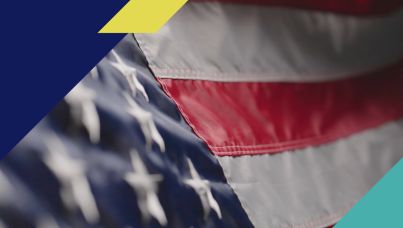American Kids Spend Most Time Online But More Likely To Face Content Restrictions From Parents
Overall, about two-thirds (64%) of the 10,000 teenagers and young adults with home Internet access surveyed by Ipsos-Reid said their parents set neither curfews nor time limits, nor monitor or restrict the content of what they see online, either through verbal instructions or such devices as filtering software programs. Still, the research company discovered wildly varying approaches among parents around the world when it comes to supervising Internet usage.
"European parents seem to have a much more relaxed attitude when it comes to what and how their children see and surf online," said Ed Morawski, Vice President of Global Research for Ipsos-Reid in New York. "The European approach to parenting is generally much more open and you can see this behavior online as well.
"The interesting paradox in North America is that while most parents pay for their kids' Internet access, they're far more likely to restrict or monitor what sites they visit. Parents here exhibit both liberal and puritan behaviors. It's like taking your kid to a candy store, but telling them what to choose."
In the U.S., about 40% of American youth report some form of Internet time or content limits, the second-highest level among the 16 countries surveyed. (Kids in the U.K. reported slightly higher restrictions.) They are also much more likely than youth in other countries to have restrictions on what sites they can visit and report that their parents have installed filtering software on their home computers. The 12-17 age group face far greater restrictions than do young adults aged 18-24. The percentage of teenagers under 17 who report some form of limitation on what they can see jumps to 52%, compared to 18% for 18-24-year olds.
One-in-five (19%) Americans between the ages 12 and 24 with home Internet access said that their online activities are limited by filtering software. By contrast, only 4% of surveyed youth with home access in France, 3% of them in Italy and Sweden, and 2% of them in the Netherlands face this same limitation.
Nearly three-in-ten American youth (28%) also report some form of parental monitoring or restrictions over the sites they visit, compared with only 8% of youth in Spain and 10% in Sweden.
But software and site censorship isn't the main area of concern for some parents. For some parents, worries center around the amount of time spent by their kids online. These parents are more likely to be found in Europe, where Internet access fees are generally higher than they are in North America and structured differently (e.g., not flat). This is probably the reason that American youth are less likely than youth of most other countries to be hindered in terms of time allowed online.
To illustrate this last point, the percentages of youth in different countries that report online time limits and curfews are as follows: 28% in France, 24% in Italy, 37% in Sweden, and 24% in the Netherlands. And the U.S.? Just 19% of American youth report these time restrictions, which is quite a difference from their European counterparts.
Looking at these findings, Morawski said: "The concerns of parents in the real world are far from universal. Why should their concerns about the online world be any more collective? As much as Internet access may be widespread, different cultures will always prioritize different values and worry about different things. As long as fee structures remain inconsistent around the world, the dissimilarities between European and American online parenting styles will continue."
Methodology The Face of the Web: Youth is a two-phase survey conducted in the spring and summer with over 10,000 youths between the ages of 12 and 24 in 16 countries. Half of the interviews were conducted with a representative sample of the youth populations in each country to track current Internet awareness, usage, and intentions to go online. The remainder of the interviews focussed on young Internet users in each country to investigate their Internet usage patterns and experience with Internet music, chat, and retail services.
National samples each consisted of 300 12-24-year-olds, except in the U.S., where 600 interviews were conducted. Results outside the U.S. are accurate within an error margin of no more than plus/minus 6 percentage points, 19 times out of 20; in the U.S., the results are accurate within an error margin of no more than plus/minus 4 percentage points, 19 times out of 20.
About Ipsos-Reid
Ipsos-Reid has been tracking public opinion around the world for more than 20 years and has become a leading provider of global public opinion and market research to private, public and not for profit organizations in over 50 countries. With more than 1,300 staff in 11 cities, Ipsos-Reid offers clients a full line of custom, syndicated, omnibus and online research products and services. It is best known for its line of Express opinion polls, the World Monitor public affairs journal, and The Face of the Web, the most comprehensive study of global Internet usage and trends. It is a member of Paris-based Ipsos Group, ranked among the top ten research groups in the world.
For more information, please contact:
Edward Morawski (212) 584-9270 or Gus Schattenberg 604) 893-1606.

